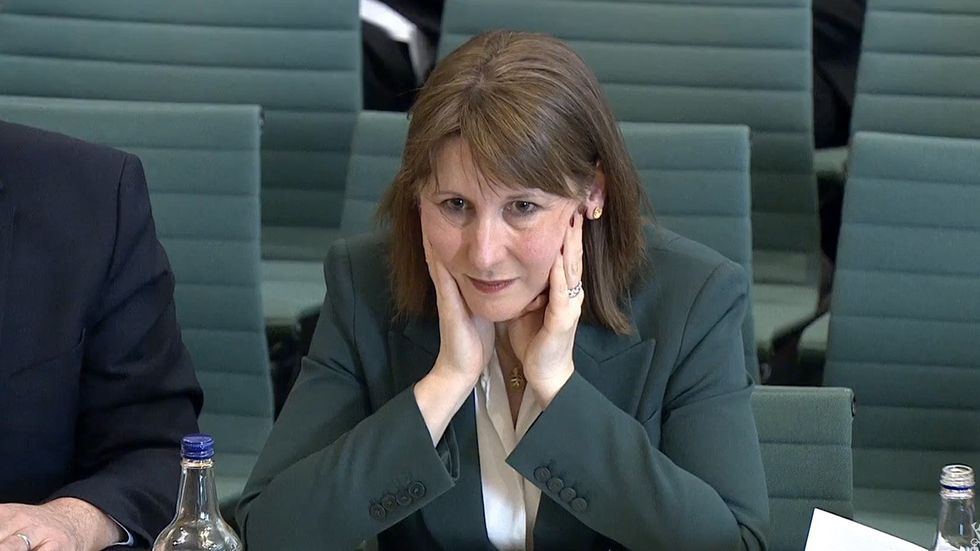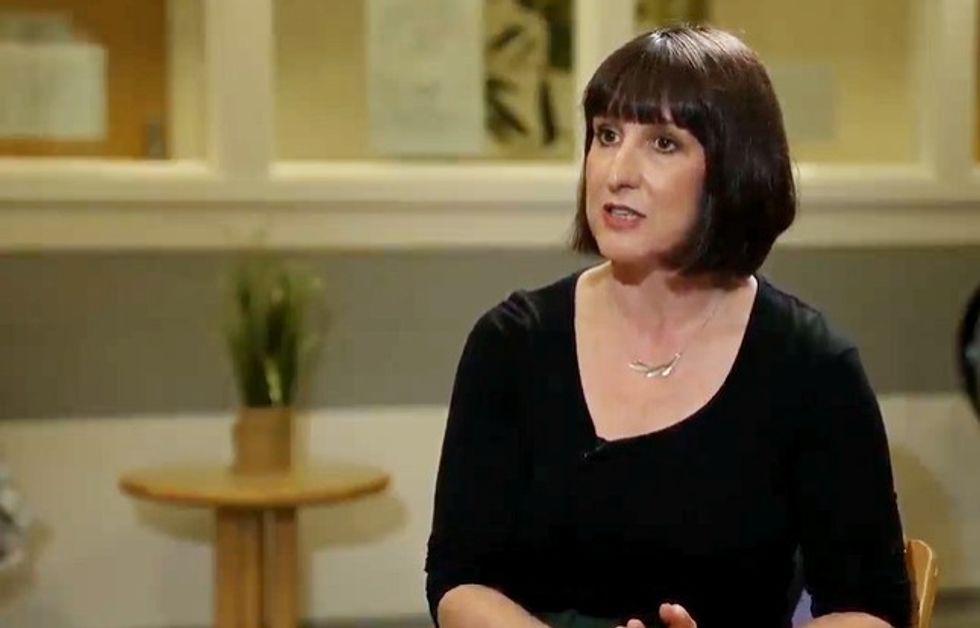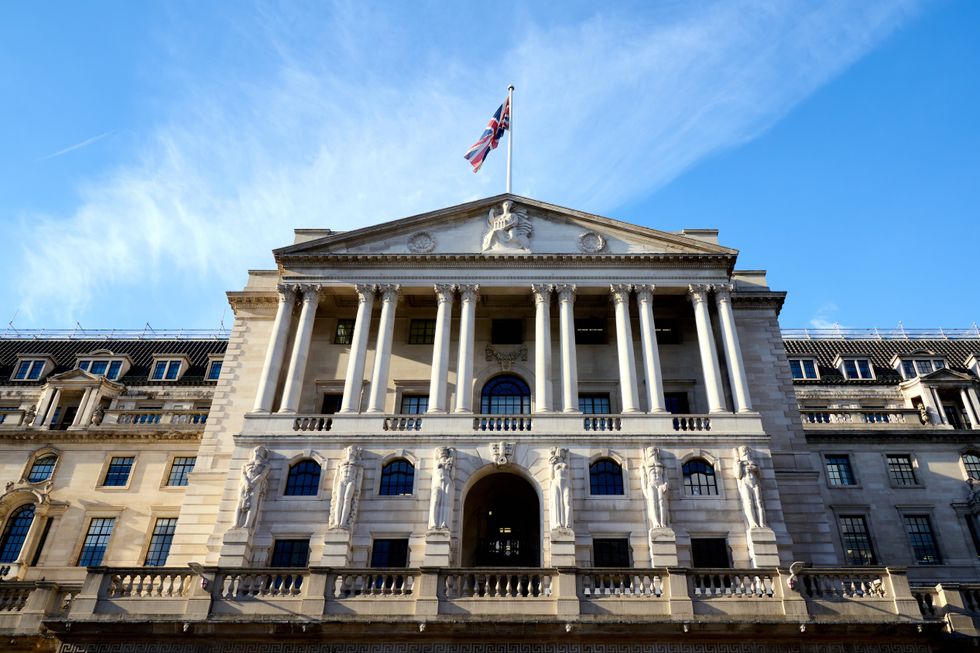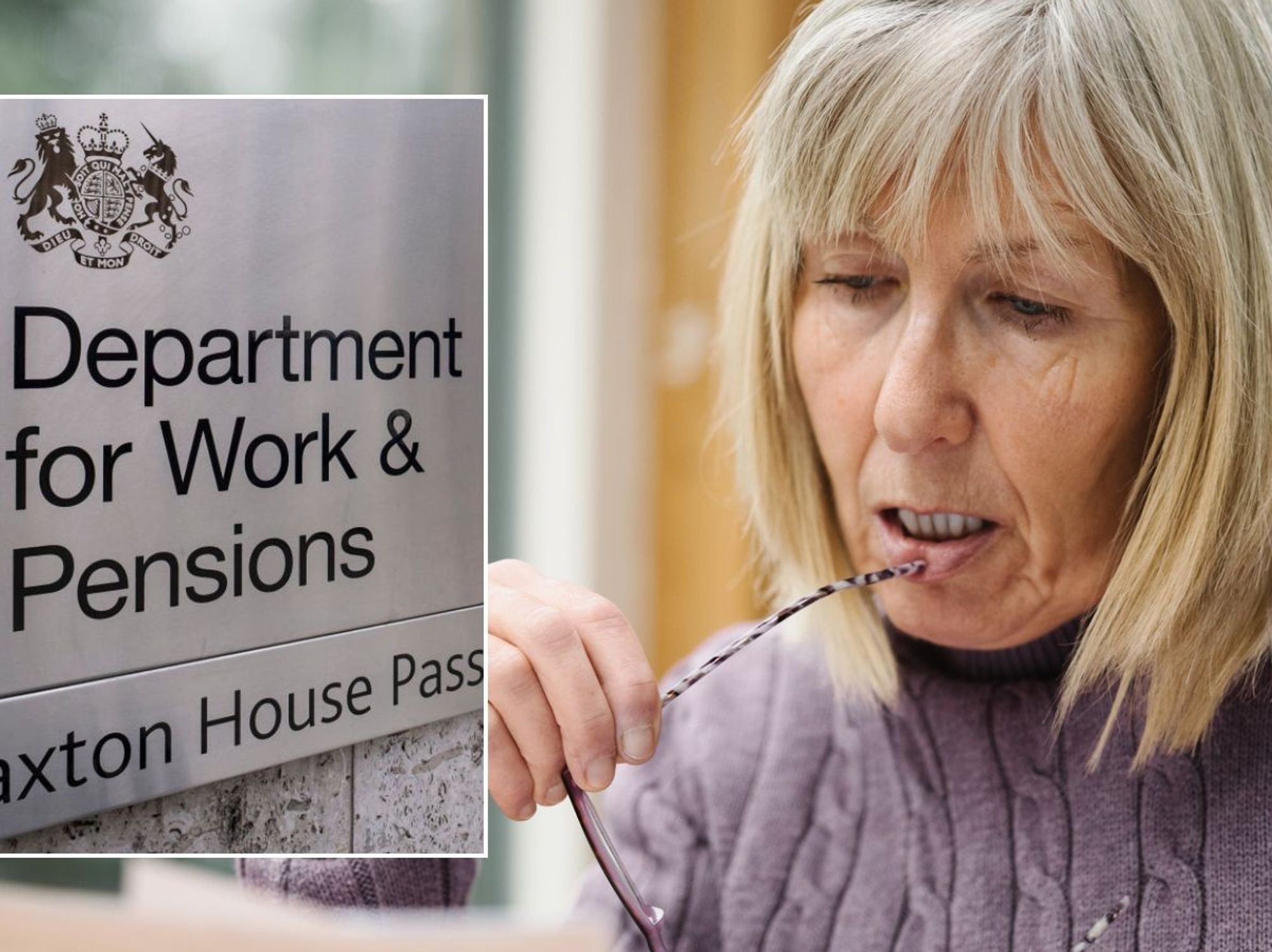Interest rates cut: Recession warning as top economist says Bank of England move falls short - ‘I would have welcomed more’
GBNEWS
The Bank of England has cut the the base rate to 4.25 per cent
Don't Miss
Most Read
Trending on GB News
Rachel Reeves has been warned of a looming darkening economy, despite the Bank of England’s decision to cut interest rates.
Although the base rate was cut, experts explain that interest rates "still remain high" and households are bearing the brunt as they are set to spend an extra £3,500 under the Labour Government.
UK interest rates were cut to 4.25 per cent today, following a split vote among policymakers.
The Bank’s nine-person Monetary Policy Committee (MPC) voted by a majority of five-four to reduce rates by 0.25 percentage points, bringing it down to the lowest level since May 2023.
Despite interest rates falling under Labour, Sir Mel Stride, Shadow Chancellor, hit out at Reeves’ policies, suggesting they had prevented more aggressive cuts.
He said: "While we welcome this decision, which will provide some relief to families enduring ever-rising taxes under this Labour Government, interest rates remain high.
"Labour’s economic mismanagement is keeping interest rates higher for longer, pushing up bills and subjecting working people to tax hikes, leaving families £3,500 worse off. Labour must put working people first and change course now."
 Rachel Reeves's decisions have drawn scorn from pub landlordsParliament TV
Rachel Reeves's decisions have drawn scorn from pub landlordsParliament TVProfessor Joe Nellis, economic adviser at MHA, also believes the Bank of England should have been more aggressive with its interest rate cut.
He said: "While it's no surprise that the Bank of England has cut interest rates, they should have been bolder in their attempt to kick some life into the economy," suggesting a larger cut to four per cent would have been more effective.
Despite recent trade announcements, including UK/US tariffs, Nellis argues the economy's "overall downward trajectory" remains unchanged.
He points out that the Bank of England has prioritised growth over managing inflation, noting that "despite inflation consistently remaining above the Bank’s two per cent target and expected to rise further, it is growth that is clearly their priority."
Nellis stresses that stagnating economic growth is a long-term issue, which requires urgent action: "A weak economic outlook, compounded by uncertainty surrounding global trade, is a long-term problem that requires intervention."
He also reflects on the European Central Bank’s more aggressive approach, saying: "Reeves could certainly do with our own Central Bank being much bolder."
LATEST DEVELOPMENTS:

Rachel Reeves has been criticised for not going further
PAAlthough the economic outlook remains uncertain, homeowners could benefit from the base rate cut as mortgage rates have experienced high levels over the past years.
Peter Stimson, Head of Product at the mortgage lender MPowered said: "No surprise on the decision, but no slam dunk either.
"The UK’s darkening economic outlook and the very real threat of a global recession have led the mortgage markets to price in a steady ratcheting down of the Base Rate this year.
“But the Bank’s tinge of caution today hints that the next cut may not come as soon as thought, and raises the question that the mortgage market might have got somewhat ahead of itself.
“In recent weeks the swaps market has been suggesting that the next Base Rate cut could come as soon as June, but that is suddenly looking less likely.
“As swap rates digest today’s decision and the Bank’s accompanying minutes, mortgage lenders might just press pause on their plans to announce more interest rates in coming weeks."
UK economic growth is expected to be stronger than previously thought this year, but weaker over 2026 as the impact of tariffs on global trade takes its toll, according to new forecasts from the Bank of England.
The projections show gross domestic product (GDP) will average at one per cent this year, marking an upgrade from the 0.75 per cent growth predicted in the Bank’s last report in February.
This is largely due to growth over the first three months of 2025 being higher than the Bank had previously anticipated.
But the forecast for 2026 has been downgraded to 1.25 per cent, from 1.5 per cent previously.
The Bank also cut its growth outlook for the world economy to 1.5 per cent in 2026, from two per cent previously, as new US tariffs and heightened uncertainty over global trade weigh on economic activity around the world.
 The Bank of England is lowering the base ratePA
The Bank of England is lowering the base ratePAChancellor Rachel Reeves has welcomed the interest rate cut but acknowledged families are still facing a cost-of-living squeeze.
She said: "This interest rate cut is welcome news, and the fourth since we came into government making it cheaper for businesses to borrow, reducing the cost of a new mortgage, making homeownership more accessible, car finance more affordable and easing the pressure on those paying off personal loans.
"But there is more to do, and I know families are still facing cost-of-living pressures.
"In a changing world we’re bringing stability to the public finances and going further and faster to grow the economy, putting more money in the pockets of working people through our plan for change."







